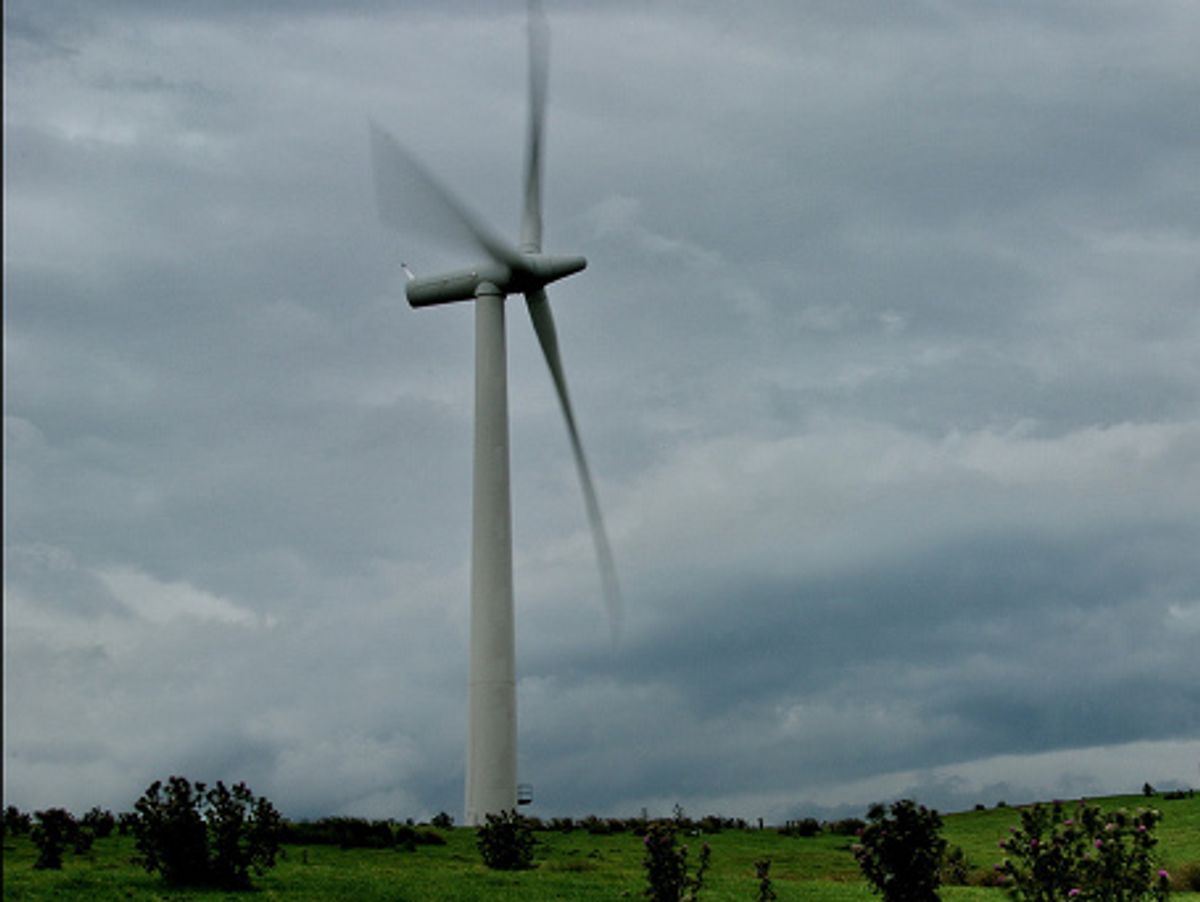Opponents of wind power often cite potentially negative effects on human health caused by huge turbines— from noise and related sleep problems, to the "shadow flicker" of the blades passing across windows. But a study commissioned by the Massachusetts Department of Environmental Protection and released last week found little existing evidence of harm from wind energy.
The study acknowledged the possibility of wind power-related sleep disturbances and other issues. But overall, it found the evidence on severe health effects to be unremarkable. For example:
"None of the limited epidemiological evidence reviewed suggests an association between noise from wind turbines and pain and stiffness, diabetes, high blood pressure, tinnitus, hearing impairment, cardiovascular disease, and headache/migraine."
The study, which was conducted by a panel of independent experts, also noted the lack of evidence supporting the existence of a nebulous health problem characterized as "wind turbine syndrome."
The study might make renewable energy development a bit easier—at least for Massachusetts; the state aims to increase its 40 megawatts of wind power 50-fold (to 2,000 MW) by 2020. Still, conflicts such as health-based NIMBY claims are inevitable.
More generally, this study adds to a limited collection of work downplaying the health effects of living near wind turbines. But because battles over energy siting are fought in courts and town halls rather than doctors' offices, it remains to be seen how big a role health concerns will play as renewable energy projects proliferate. A recent Energywise blog described a case in the United Kingdom involving supposed sleep disturbances and health problems near a wind farm; the case was settled and sealed, so few lessons can be gleaned from it.
And even a supposedly independent study like the aforementioned one in Massachusetts is not guaranteed to change all that many opinions. Attendees at a town hall debate about a wind farm in Western Massachusetts were apparently split on the study's worthiness, according to the Berkshire Eagle. Convincing everyone of wind power's importance and safety, clearly, is still a few independent studies away.
(Image via Ian Mynard)
Dave Levitan is the science writer for FactCheck.org, where he investigates the false and misleading claims about science that U.S. politicians occasionally make.




